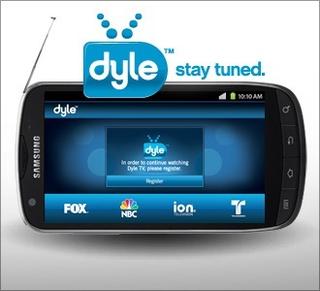Wireless data carriers get green light to merge
As expected, the Federal Communications Commission on Tuesday approved the merger of T-Mobile USA and MetroPCS Communications, the No. 4 and No. 5 cell phone carriers in the country, with no unusual conditions. The move was welcomed by the broadcast industry as a good way to re-access and manage the use of the companies’ combined wireless spectrum. Perhaps now they won't look to acquire as much bandwidth from the upcoming FCC auctions next year as was previously thought.
T-Mobile and MetroPCS appear to have two things in common: They use the same wireless spectrum frequencies, and they’re both planning to launch LTE (4G) services. However, technically, in the short term, the combined company could find it difficult to operate as a joint CDMA-GSM 3G infrastructure. (T-Mobile has mostly deployed Code-Division Multiple Access technologies while MetroPCS’ service are based around Global System for Mobile Communications networks.) This means trying to juggle two separate sets of customers and managing three separate networks in the 1700 MHz and 1900 MHz spectrum bands.
The new company will do business under the “T-Mobile” name, although MetroPCS and T-Mobile will continue to operate as separate customer divisions. At the end of the day, it will still be the No. 4 U.S. mobile carrier (behind No. 3 Sprint), but will now boast about 42 million subscribers in total. For T-Mobile itself, the merger expands the company’s spectrum holdings in major cities such as New York and San Francisco and other regions in between, enabling it to offer nationwide 4G LTE services like its larger competitors.
"NAB is very pleased that the FCC today approved T-Mobile's acquisition of MetroPCS,” said Rick Kaplan, Executive Vice President of Strategic Planning at the NAB, alluding to a letter sent by NAB President and CEO Gordon Smith that urged the Commission to approve the transaction. “We applaud the wireless industry's efforts to rationalize its substantial spectrum holdings, and this deal is another market-based step in the process of meeting the demand for data.”
To date, only MetroPCS has offered a cell phone (Samsung’s Galaxy S III 4G Android OS phone with an internal Mobile DTV receiver chip) capable of picking up Mobile DTV signals over the air from local broadcasters. Although no official sales figures have been released to date — and supplies have been minimal at best — the Mobile DTV-capable phone has not sold in any significant numbers anywhere in the U.S. It’s hoped that the new merger will boost support within the company for the ATSC Mobile DTV standard (A/153) and make it more widely available across the country.

Under terms of the merger approval, Deutsche Telekom (based in Germany), T-Mobile USA’s parent company, will hold a 74 percent stake in the combined company, while shareholders of Dallas-based MetroPCS will control the remainder. MetroPCS shareholders will also receive a special dividend totaling about $1.5 billion.
Last year, regulators (led by the Department of Justice) blocked the proposed acquisition of T-Mobile USA by AT&T, the No. 2 wireless company, because they said at the time that the deal represented an unfair reduction in competition for consumers. Apparently the same FCC commissioners and DOJ members feel that the merger of two smaller players is less of a threat, since both companies have been losing subscribers over the past year. As a combined entity, both companies said they would be better able to compete with larger companies like AT&T, Sprint and Verizon.
Get the TV Tech Newsletter
The professional video industry's #1 source for news, trends and product and tech information. Sign up below.
“With today’s approval, America’s mobile market continues to strengthen, moving toward robust competition and revitalized competitors,” FCC Chairman Julius Genachowski said in a statement. “We are seeing billions more in network investment, while the courts have upheld key FCC decisions to accelerate broadband build-out, promote competition and benefit consumers, including our broadband data roaming and pole attachment rules.
“Today’s action will benefit millions of American consumers and help the U.S. maintain the global leadership in mobile it has regained in recent years.”
Genachowski added “mobile broadband is a key engine of economic growth, with U.S. annual wireless capital investment up 40 percent over the last four years, the largest increase in the world, and few sectors having more potential to create jobs. In this fast-moving space, of course challenges remain, including the need to free up even more spectrum for mobile broadband and continuing to promote competition and protect consumers. The commission will stay focused on these vital goals.”
The new merger was given the OK by the Department of Justice last week, and the final step to completing the deal will occur in April, when MetroPCS shareholders put the merger to a vote. Numerous factions of MetroPCS' largest shareholders, including billionaire John Paulson, oppose the deal, so a protracted fight could stall the vote and a smooth merger completion.
